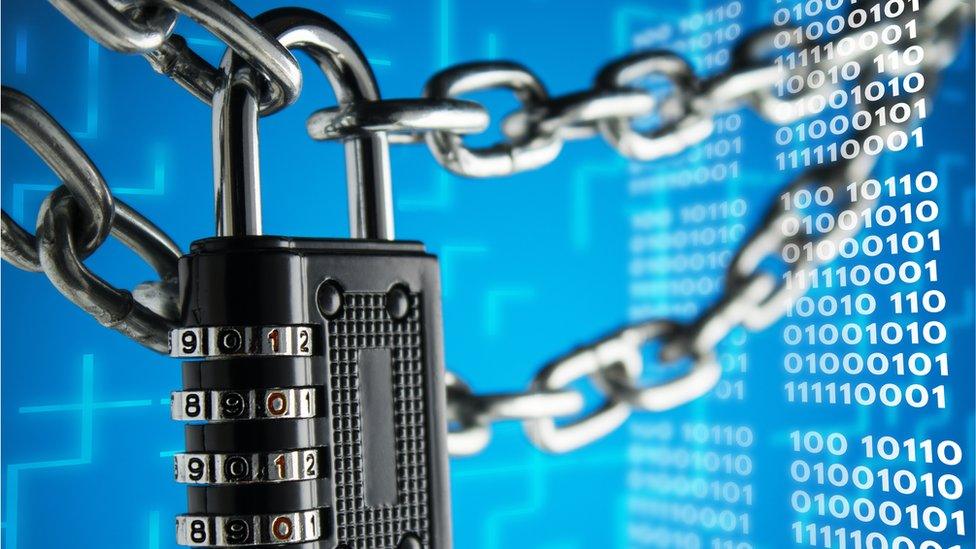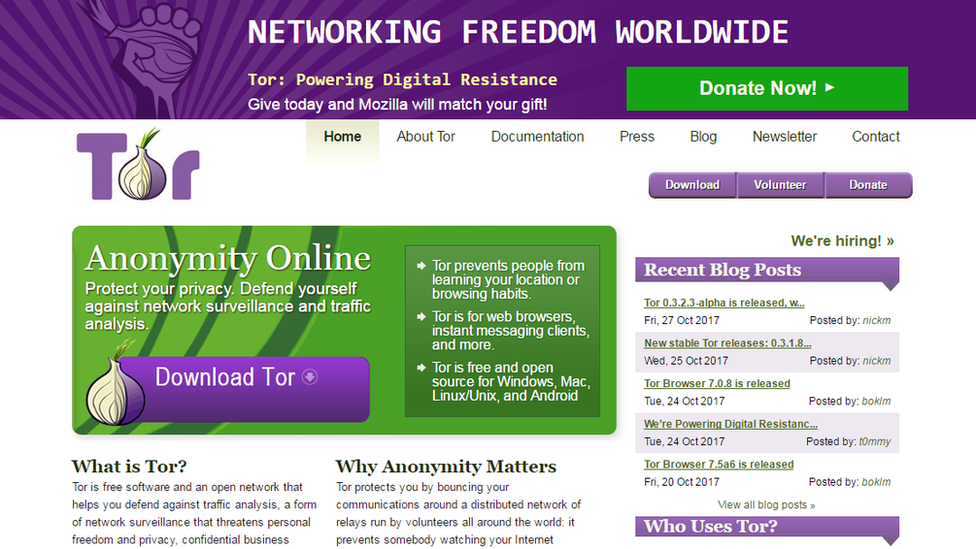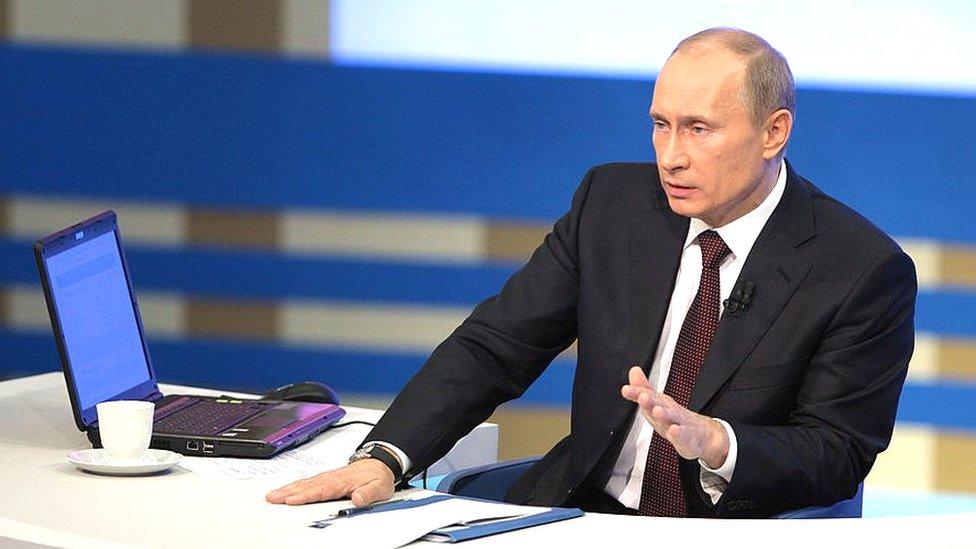Explainer: What is Russia's new VPN law all about?
- Published
EXPLAINED: What is a VPN service?
A Russian law regulating the use of technologies enabling users to search the internet anonymously came into force on 1 November.
Many are worried the law will make it harder for Russians to bypass internet censorship.
Signed by President Vladimir Putin in July, the law imposes restrictions on proxy avoidance tools.
These tools include virtual private networks (VPNs) and anonymous proxy servers (anonymisers).
VPN providers will be obliged to closely cooperate with Russian media watchdog Roskomnadzor and comply with its requests.

What's a VPN?
A VPN is a private network created over a public network.
Despite popular belief, VPNs cannot make online connections completely anonymous, because some VPN providers can keep users' logs.
However, they can still increase a user's privacy and security by hiding their IP address.
In a corporate work setting, VPNs allow employees to securely access an intranet from outside the office.
Both VPNs and anonymisers allow a user to appear as if they were connecting to the internet from another location.

What exactly is banned?

Under the new law, VPNs can be used only to access websites not banned by Russia
Despite widespread speculation, the law does not directly ban the operation of VPNs and anonymisers. However, it does restrict access to banned websites with the help of these tools.
VPN providers will get access to Roskomnadzor's blacklist of banned websites and will be entitled to provide the use of their servers "within the legal framework", the banki.ru banking portal, external reports.
Leonid Levin, the head of the Russian State Duma's information policy committee, has previously said the law is meant to block access only to "unlawful content" and is not intended to impose restrictions on law-abiding citizens, according to business daily RBC, external.

Will it work?
Roskomnadzor has been developing measures to identify suspect websites, as well as ways to block them.
However, in practice this is very difficult, and it may have unwanted consequences. For instance, the watchdog has a single register of banned domain names.
In June, one of Google.ru's web pages contained a redirect to a blocked online gambling domain, so due to the ban, the search engine was blocked for several hours, external.

The Tor Project is free software and an accompanying network that lets people visit websites anonymously
According to IT experts, the law provides exemption for corporate VPNs. However, it remains unclear how exactly Roskomnadzor will distinguish between corporate and public VPNs.
At present, it is impossible to differentiate them, says Leonid Yevdokimov, an expert at the Tor Project, external - a US-based team that creates software to let people visit websites anonymously and access otherwise hidden parts of the net.

What will happen?
Some Russian social-media users have been agonising over whether the watchdog will now be able to restrict internet access from home if they search for a banned website. IT experts are unanimous that it will not.
It is up to search engine operators such as Google and Yandex to "shield" users from such banned websites, and if they fail to do so, they can be held responsible, banki.ru says.
Most lay internet users would not notice any changes once the law came into force, the communications director at media holding Rambler&Co, Matvei Alexeyev, told the BBC.
He sees it as a step towards greater transparency of VPN servers.
- Published31 July 2017

- Published17 August 2017
